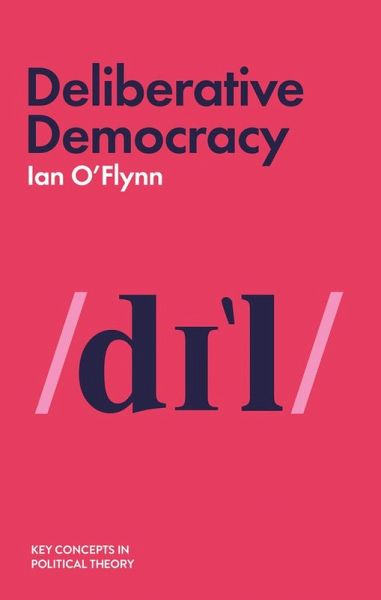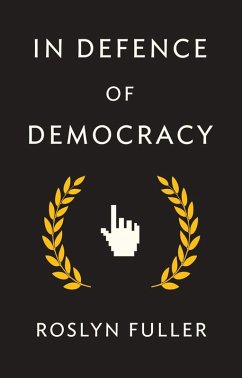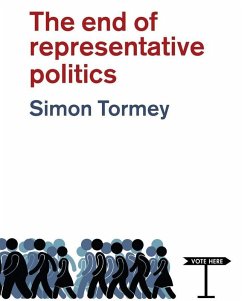
Deliberative Democracy (eBook, ePUB)
Versandkostenfrei!
Sofort per Download lieferbar
14,99 €
inkl. MwSt.
Weitere Ausgaben:

PAYBACK Punkte
0 °P sammeln!
Today, deliberative democracy is the most widely discussed theory of democracy. Its proponents argue that important decisions of law and policy should ideally turn not on the force of numbers but on the force of the better argument. However, it continues to strike some as little more than wishful thinking.In this new book, Ian O'Flynn examines how the concept has developed over recent decades, the family disagreements which have emerged, and the criticisms that have been levelled at it. Grappling with the familiar charge that ordinary people lack the motivation and capacity for meaningful deli...
Today, deliberative democracy is the most widely discussed theory of democracy. Its proponents argue that important decisions of law and policy should ideally turn not on the force of numbers but on the force of the better argument. However, it continues to strike some as little more than wishful thinking.
In this new book, Ian O'Flynn examines how the concept has developed over recent decades, the family disagreements which have emerged, and the criticisms that have been levelled at it. Grappling with the familiar charge that ordinary people lack the motivation and capacity for meaningful deliberation, O'Flynn considers the example of deliberative polls and citizens' assemblies and critically assesses how such forums can fit within a broader democratic system. He then considers the implications of deliberative democracy for multicultural and multi-ethnic societies before turning to the prospects for the most ambitious deliberative project of all: global deliberative democracy.
This book will be essential reading for students and scholars of democratic theory, as well as anyone who is curious about the prospects for more rational decision-making in an age of populist passion.
In this new book, Ian O'Flynn examines how the concept has developed over recent decades, the family disagreements which have emerged, and the criticisms that have been levelled at it. Grappling with the familiar charge that ordinary people lack the motivation and capacity for meaningful deliberation, O'Flynn considers the example of deliberative polls and citizens' assemblies and critically assesses how such forums can fit within a broader democratic system. He then considers the implications of deliberative democracy for multicultural and multi-ethnic societies before turning to the prospects for the most ambitious deliberative project of all: global deliberative democracy.
This book will be essential reading for students and scholars of democratic theory, as well as anyone who is curious about the prospects for more rational decision-making in an age of populist passion.
Dieser Download kann aus rechtlichen Gründen nur mit Rechnungsadresse in D ausgeliefert werden.













